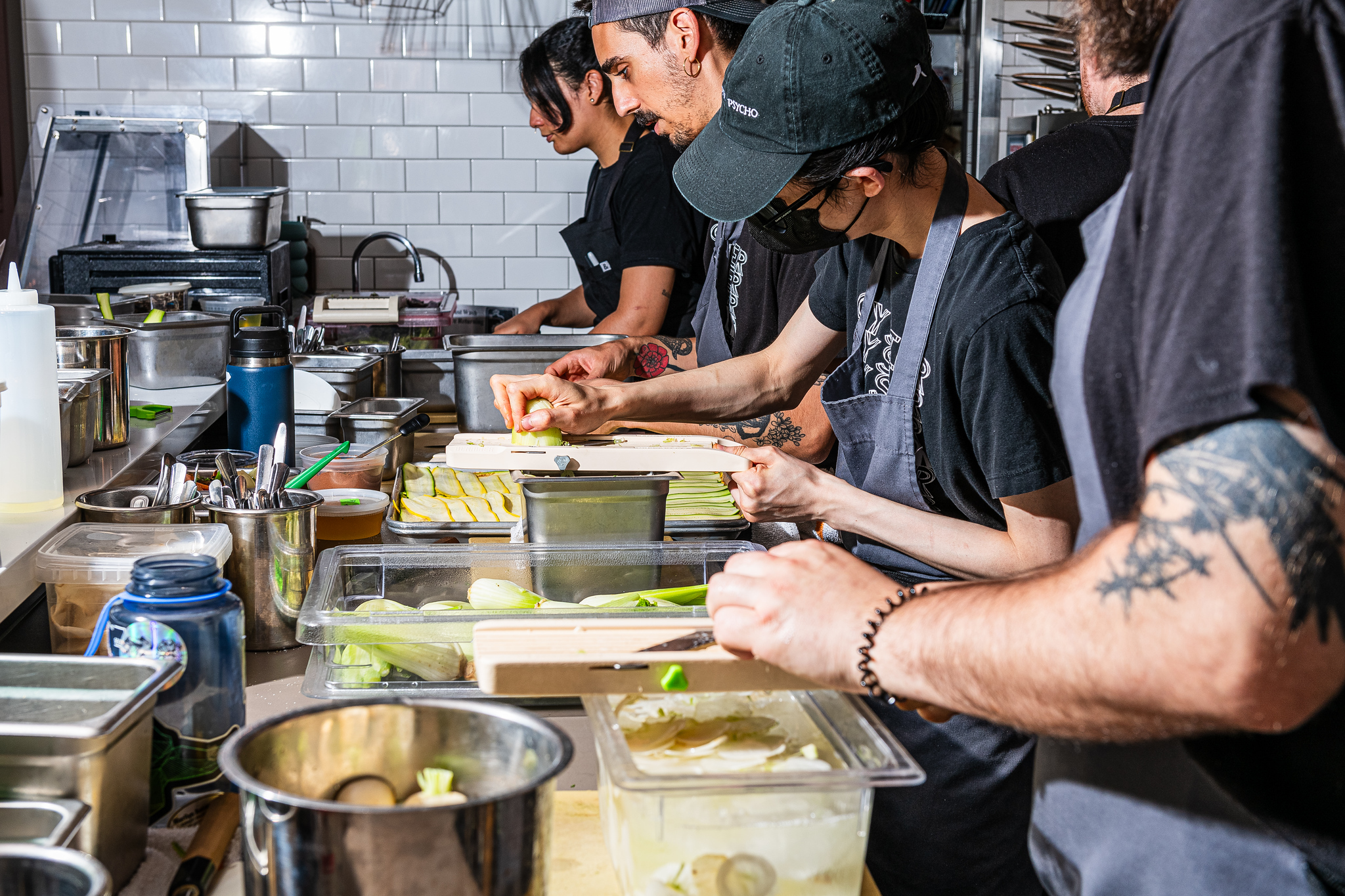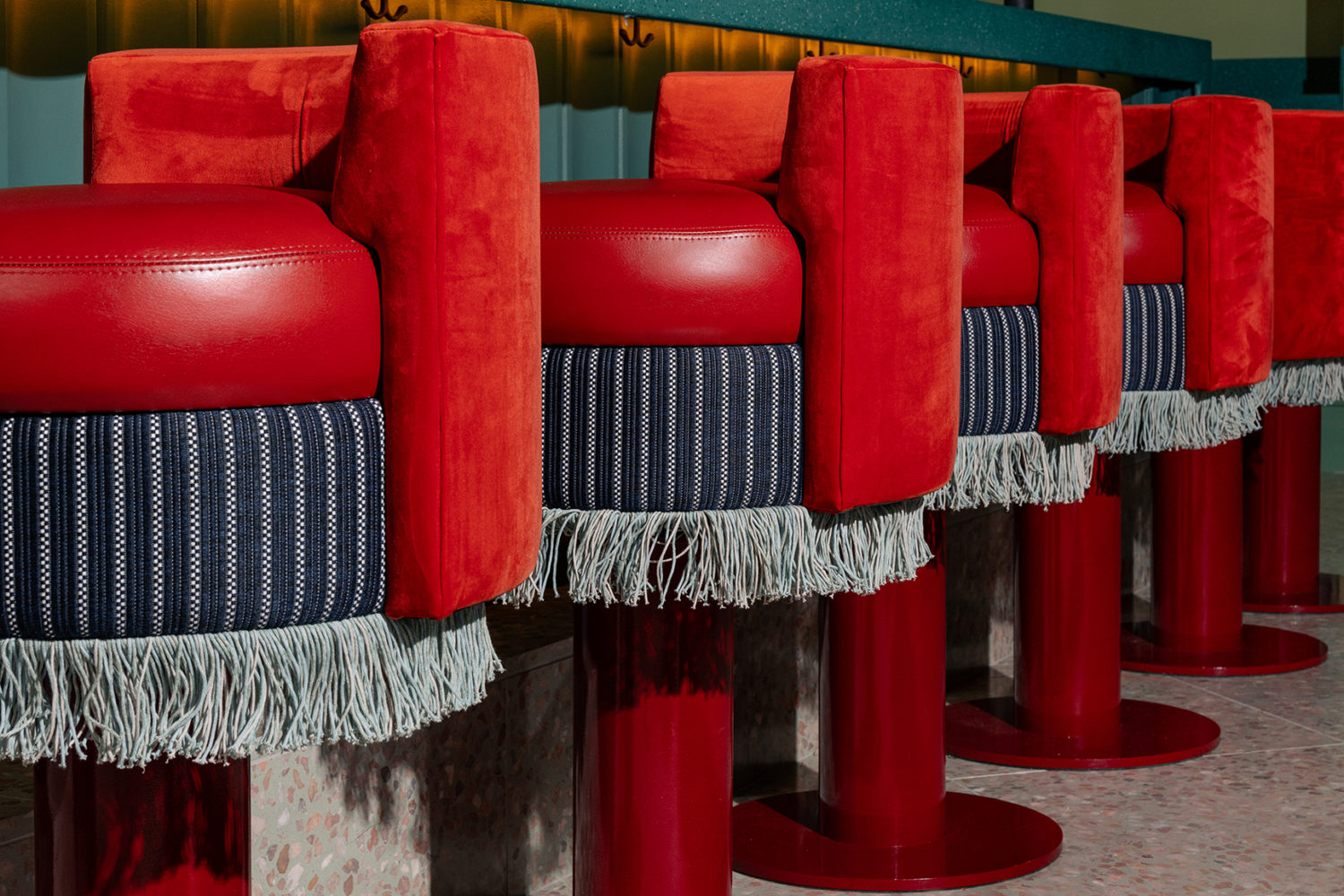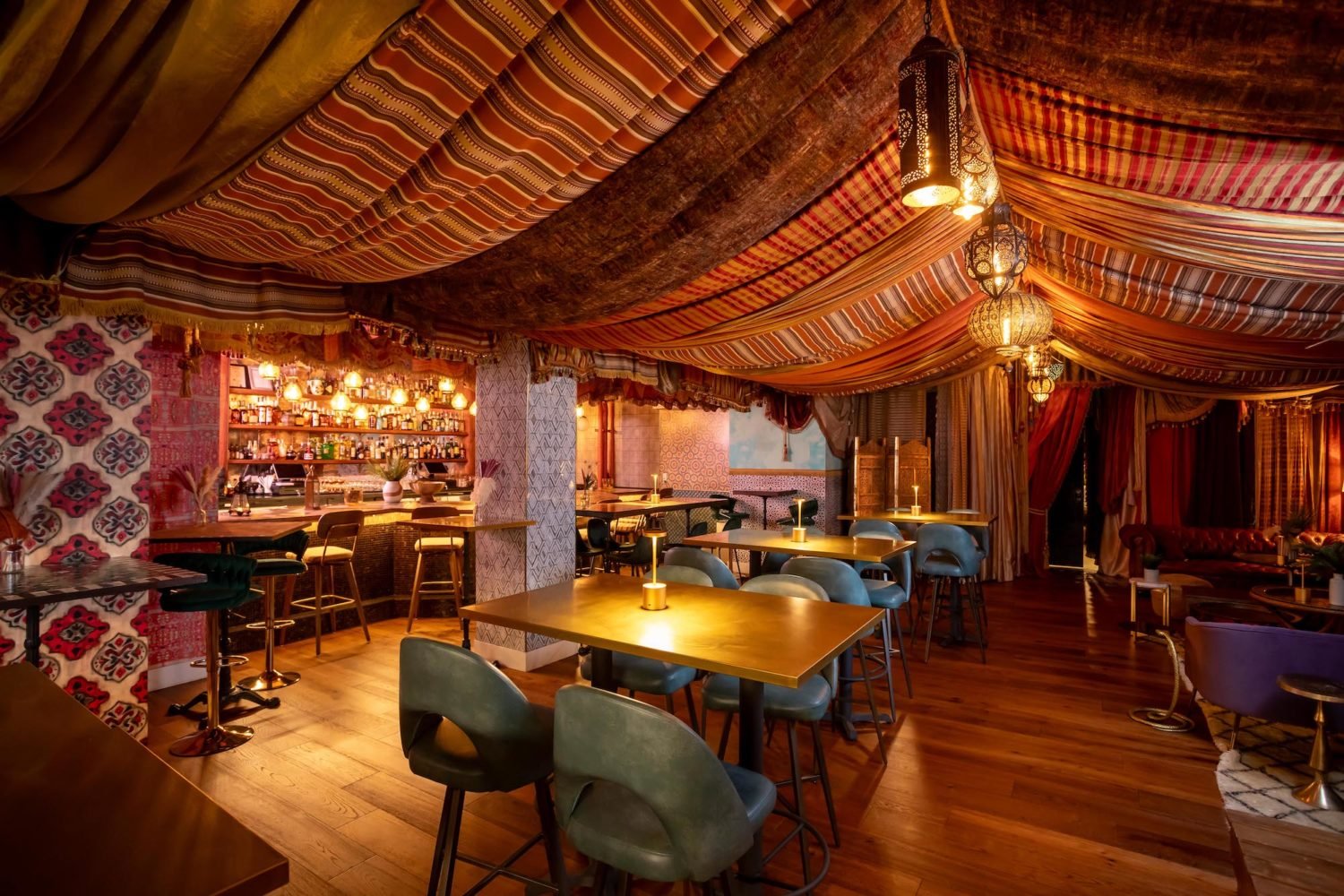You can count on most restaurants to be open year-round, and often on holidays from Fourth of July to Thanksgiving. But a growing number of DC restaurants—including pizza shop Martha Dear and fine-dining rooms Kinship and Fiola—are embracing the idea of summer vacation and shutting their doors for a week or more to give staff paid time off. In the wake of the pandemic, operators say it’s more necessary than ever for those who can afford to do it.
“The expectation that restaurants should always be open, we don’t necessarily agree with it,” says Gus May, co-owner of Mount Pleasant breakfast taco joint La Tejana. “Covid kind of helped the public realize that all of these restaurants and bars that they love are made up of human beings… We need to continue to prioritize that.”
La Tejana will be closed for two weeks beginning August 9th, and the whole staff will get a paid vacation. “This is about saying to our staff, ‘Hey, we deserve a break.’ And it’s not just them, we want to chill too,” May says. He and co-owner Ana-Maria Jaramillo got married last year and plan to finally take their honeymoon to Mexico.
After announcing the hiatus, Jaramillo says she was shocked by how many people were commenting on and sharing the news on social media. “Why are we even so surprised that humans are taking a break?,” she says. They also hope to disavow the notion that taking a hiatus means somehow disappointing customers. “Even as a small mom and pop shop, we can set an example for other shops that feel like that’s not the norm.”
Vegetable-centric Shaw tasting restaurant Oyster Oyster is well known for its dedication to sustainability. But owner Rob Rubba says that doesn’t just apply to ingredient sourcing or food waste. It also means a sustainable work environment for employees—exactly why the restaurant is on its second eight-day break this year.
“It’s an industry where we’re meant to be there all the time. It’s a hard job, regardless of what level you’re cooking it. It’s physical work,” Rubba says. He likes to close the entire restaurant so that no staffers have to worry about what’s happening back at work. “Everyone can relax. Everyone can go away. You all come back collectively refreshed and inspired. And it just really helps with staff retention, as well as just like culture within the restaurant,” says Rubba, who took his family to the Outer Banks.
Popular hotspots like Oyster Oyster and La Tejana don’t have a “slow season.” But August—along with January—are famously sluggish times for most restaurants. “You won’t make money in the time that you’re off, but at the same time, it’s not going to break your bank or cripple you in anyway,” says Nam-Viet owner Richard Nguyen. His Clarendon Vietnamese restaurant has been taking its own week-long August recess since 2011. But he’s found it to be even more necessary now, because many customers have been particularly demanding and intense coming out of the pandemic.
Still, paid vacation time in the hospitality industry pales in comparison to many white-collar Washington jobs. And while salaried restaurant staff typically continue to get full pay while the establishment is closed, tipped workers often only make minimum wage. At least that’s the case at Oyster Oyster, La Tejana, and Nam-Viet. La Tejana’s owners say they hope to be able to add to that in the future: “This year, we’re only in the position to pay people for one week,” May says. Meanwhile, Nam-Viet’s Nguyen says he tries to make up for the missed gratuity income with year-end bonuses.
The fact is that temporarily closing down a rent-paying business can be a luxury for many in a tight-margin industry. Oyster bar and restaurant Brine, which has locations on H Street Northeast and in Dupont, previously took a two-week summer break for paid staff vacation. This year, it’s just one week. “In certain areas of DC, it’s a struggling market. It’s more of a survival thing: how can we trim if we’re going to survive?,” says co-owner Aaron McGovern. Logistically speaking, he says he has to close up if he wants to offer everyone a vacation because he doesn’t have enough staff to fill in.
“It’s just too small. Who can have a backup team at a 40-seat restaurant?,” he says. “Unfortunately, we can’t do two weeks. I wish I could.”














